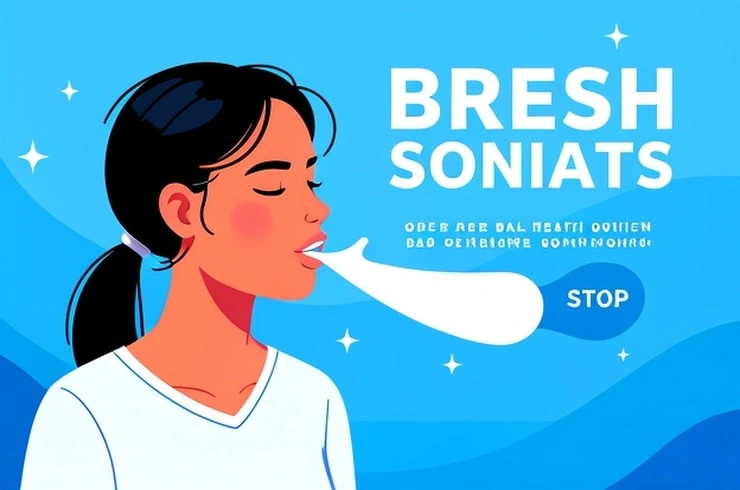
Nobody enjoys the realization they have bad breath, but if you've noticed an unpleasant odor lately, there's good news: it's often treatable. The first step to a fresher mouth is understanding what's causing the problem. Once you pinpoint the reasons, you can effectively tackle bad breath and restore your confidence.
What Causes Bad Breath?
The most frequent culprit behind bad breath is poor oral hygiene. When you don't brush and floss regularly, plaque and bacteria accumulate in your mouth. These bacteria are notorious for releasing foul-smelling chemicals, leading to an unpleasant odor. However, other factors can also contribute to bad breath, including:
Strong-smelling foods like garlic or onions.
Alcohol consumption.
Tobacco use.
Chronic oral conditions such as gum disease or tooth decay.
Oral infections.
Dry mouth.
Beyond the mouth, bad breath can originate from your stomach. Gastrointestinal issues like acid reflux are known causes, as are conditions involving excessive vomiting, such as severe morning sickness or bulimia nervosa. Furthermore, other systemic health problems like diabetes, respiratory infections, lung disease, and liver disease can also manifest as bad breath.
Diagnosing Bad Breath
It's common for people to either overthink their breath when there's no issue or, conversely, have bad breath without realizing it. While you can try the "hand-over-mouth" test, it's often hard to objectively assess your own breath. For a more accurate evaluation, it's best to ask a close friend, family member, or, ideally, your dental professional.
Your dentist or hygienist is the best person to help you uncover the root cause of your bad breath. They'll inquire about your oral hygiene routine, diet, lifestyle habits, and medical history to identify potential culprits. After diagnosing the cause, they can recommend a personalized treatment plan and refer you to a family physician or other medical specialist if necessary.
Effective Bad Breath Treatments
Fortunately, treating bad breath is often straightforward. The foundation of fresh breath lies in excellent oral care habits, which can resolve many preventable causes. Key breath-freshening oral hygiene practices include:
Brushing twice daily to control plaque buildup.
Using a tongue scraper to remove odor-causing bacteria from your tongue.
Rinsing with mouthwash after every meal to reduce plaque bacteria, prevent gingivitis, and instantly freshen breath.
Cleaning between your teeth daily with floss or a water flosser to prevent periodontal disease and keep these spaces clean.
Regular dental check-ups and professional cleanings to remove plaque and tartar.
How to Avoid Bad Breath
Beyond good oral hygiene, your diet plays a crucial role. While strong-smelling foods like garlic and onion are well-known contributors (their pungent chemicals are released via the lungs), avoiding acidic foods (like vinegar) and high-fructose foods (like sugary cereals) can also significantly reduce bad breath.
Instead, opt for a diet that promotes a healthy mouth and stomach, thereby limiting odor-causing bacteria. Moderate your sugar intake and prioritize foods that boost saliva flow, such as:
Whole grains like brown rice.
A variety of nutritious fruits and vegetables, especially crunchy ones that naturally clean your teeth.
Proteins like fish, beans, nuts, or seeds.
Fennel, which increases saliva production and contains antibacterial properties; a few sprigs after or between meals can help.
Related Conditions and When to Seek Help
While bad breath usually isn't serious, if simple self-care methods don't resolve the issue, it's vital to consult a dental professional or physician. Bad breath can sometimes be a symptom of an underlying condition that requires professional treatment, such as tooth decay or gastrointestinal problems. Addressing these issues will likely improve both your breath and other related symptoms.
Remember, fresh breath is a strong indicator of a healthy mouth, and a healthy mouth often reflects good overall health. Establishing consistent daily oral hygiene habits is paramount in fighting and preventing the underlying causes of bad breath. Start building your healthy hygiene routine today for a fresher, healthier you.
Disclaimer: This article provides general oral health information and is not a substitute for professional medical or dental advice, diagnosis, or treatment. Always consult your healthcare provider for any health concerns.
Pro Tip
The content of the article is shared by netizens, please carefully identify it